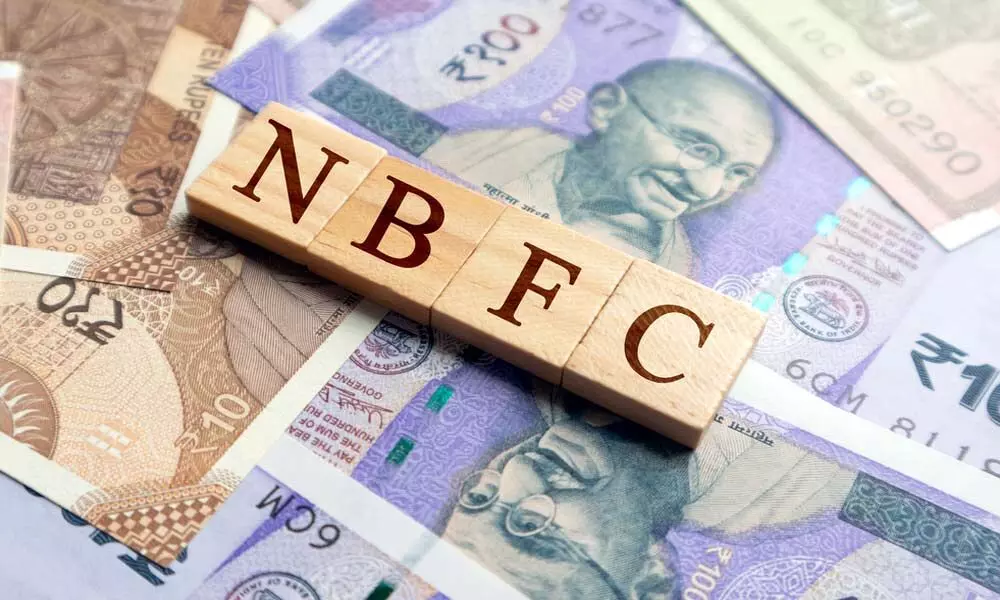NBFC sector remains buoyant: RBI
Says pandemic has tested the resilience of NBFCs, but so far, the sector has emerged stronger with reasonable balance sheet growth
image for illustrative purpose

• Asset classification standstill eased financial conditions
• Many NBFCs adopted strong credit risk assessment frameworks
• Revival in the economy
• Increased pace of vaccinations
• Various policies in the aftermath of the pandemic ensured liquidity support
Mumbai: Non-banking financial companies (NBFCs) are expected to remain buoyant going ahead, helped by the revival in the economy and increased pace of vaccinations, the Reserve Bank of India (RBI) said in its Report on Trend and Progress of Banking in India 2020-21.
The pandemic has tested the resilience of NBFCs, but so far, the sector has emerged stronger with reasonable balance sheet growth, increased credit intermediation, higher capital, lower delinquency ratio and enlarged liquidity cushions, the report released on Tuesday said. "With the increased pace of vaccinations and the broadening revival of the economy, the NBFC sector is expected to remain buoyant," the report said.
The financial system is maturing from a bank-dominated space to a hybrid system, wherein non-bank intermediaries are gaining prominence. The developments in the sector in 2020-21 are a harbinger of even brighter prospects in the years ahead, it said. It said various policies in the aftermath of the pandemic ensured liquidity support, moratorium and asset classification standstill eased financial conditions and gave NBFCs adequate time and wherewithal to weather the shock and leverage on their grass-root level reach to channelise credit to productive sectors and revive growth. Many NBFCs have adopted strong credit risk assessment frameworks to ensure the quality of credit creation.
In October 2021, the RBI introduced scale-based regulation to enhance regulatory oversight over the sector. To further strengthen the supervisory tools applicable to NBFCs, it issued a prompt corrective action framework for NBFCs effective October 2022, the report said. The recent amendment of the Factoring Regulation Act can incentivise all NBFCs to boost the MSME (micro, small and medium enterprises) sector, it said.
Many NBFCs have used the pandemic to reinvent their business models, realising the power of data analytics and Big Data in business applications. In this regard, many have tied up with fintech firms to leverage on technological innovations. The report, however, said that NBFCs need to be better equipped and focused on cyber fraud prevention. It said the RBI's recent act of superseding the boards of NBFCs that failed to repay debts is evidence of the vigil the regulator has on the sector in protecting stakeholders' interests and preventing adverse impacts on the financial system. In October this year, RBI superseded the board of Srei Infrastructure Finance Limited (SIFL) and Srei Equipment Finance Limited (SEFL).
Later In November, the central bank also superseded the board of Reliance Capital Ltd (RCL). Both the companies are facing insolvency proceedings. On credit disbursement, 57 NBFCs, each having a loan book of more than Rs 5,000 crore, lent 90.1 per cent of the total credit disbursed in 2020-21, the report said. Smaller NBFCs (asset size less than Rs 500 crore) are numerous but accounted for only 0.9 per cent of total NBFC credit outstanding. Industry remained the largest recipient of credit extended by the NBFC sector, followed by retail loans and services, the report said.
HFCs (housing finance companies) also took several proactive steps to counter the impact of Covid-19 and ensure continuity of business during the lockdown by resorting to digitally-enabled services for sourcing, processing, and disbursing loans, the report added. Going forward, given the growing population and the under-penetrated market, affordable housing finance has huge potential, the report said.

